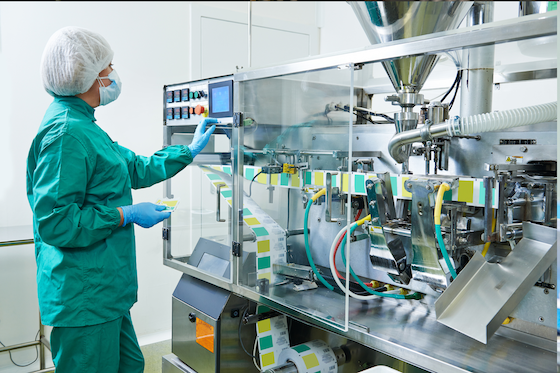
Reshoring is becoming a reality, not an empty promise, in the wake of the pandemic’s shocking supply chain disruptions. A shorter supply chain with more U.S. manufacturing is now a real goal for many companies. But pharmaceuticals aren’t jumping on the bandwagon, even though the government has been pushing for that to change.
The production of generic drugs in the U.S. is particularly appealing to the federal government, with a lot of pressure to stop sourcing the majority of our drugs in China and India, which is currently the reality.
What prevents Pharma reshoring?
Reshoring the manufacturing of generic drugs to the US faces several challenges that make it less attractive for pharmaceutical companies compared to overseas production.
The primary factor is cost. Manufacturing medication, especially generic drugs with lower profit margins, is significantly cheaper in countries like India and China. These countries have lower labor costs, relaxed regulations, and established infrastructure for pharmaceutical production.
The global pharmaceutical supply chain is intricate and interconnected. Active Pharmaceutical Ingredients (APIs), the core ingredients of drugs, are often manufactured overseas and then shipped to other countries for final processing into finished medications. Disrupting these established chains can be expensive and time-consuming.
The US Food and Drug Administration (FDA) has stricter regulations compared to some other countries. Building new manufacturing facilities in the US that meet FDA standards requires significant investment and navigating a complex approval process.
It’s the economics
People in the industry are responding to government pressure for reshoring with a demand for incentives. Currently, there aren’t enough federal incentives to encourage companies to bring production back to the US.
Conversations in Washington tend to imply that Big Pharma is doing wonderful things by producing lifesaving drugs, but it is clear that pharmaceutical companies — like most manufacturers everywhere — expect to turn profits. Producing new blockbuster drugs creates enormous profits. Churning out acetaminophen doesn’t have anywhere near the same profitability. Congress says things like, “Ensuring our nation’s independence on manufacturing and producing cost-effective, lifesaving medicines is paramount.” Pharmaceutical companies are more concerned with the fact that Humira brings in $2 billion a year in the U.S. alone.
Apart from the obvious desirability of new drugs compared with generics, there are some practical issues as well. Over the years, a significant portion of the technical expertise in generic drug manufacturing has shifted to countries with lower production costs. Rebuilding that expertise in the US would require investment in training and workforce development.
Potential solutions
Policymakers are exploring initiatives like tax breaks or subsidies to make domestic production of generic drugs more economically viable. Recent legislation has included protections like giving preference to U.S.-made drugs in Medicare and subsidizing factory building for companies that will agree to produce generic APIs in the United States.
Investing in advanced manufacturing technologies can potentially reduce production costs and improve efficiency, making domestic production more competitive. This has already worked for other industries. Recent leaps in automation and AI could make this a realistic approach.
There’s a growing focus on supply chain transparency to identify vulnerabilities and potential disruptions. This could encourage diversification of manufacturing locations to avoid overreliance on any single country. It could also create consumer pressure for U.S.-made drugs.
One possible solution would be to reshore to Puerto Rico. A U.S. territory, Puerto Rico already exports more pharmaceuticals than any state, and has FDA-approved factories ready to go, as well as workers who are experienced in producing pharmaceuticals. Labor force participation is low and unemployment is higher than in any state, so labor shortages would be less of an issue. Infrastructure issues can be challenging, but a federal investment in electricity and broadband could make this a practical solution.
While reshoring faces challenges, there’s growing interest in the US to ensure a more secure and reliable supply of generic drugs. New policies and technological advancements might pave the way for a shift in the future.
